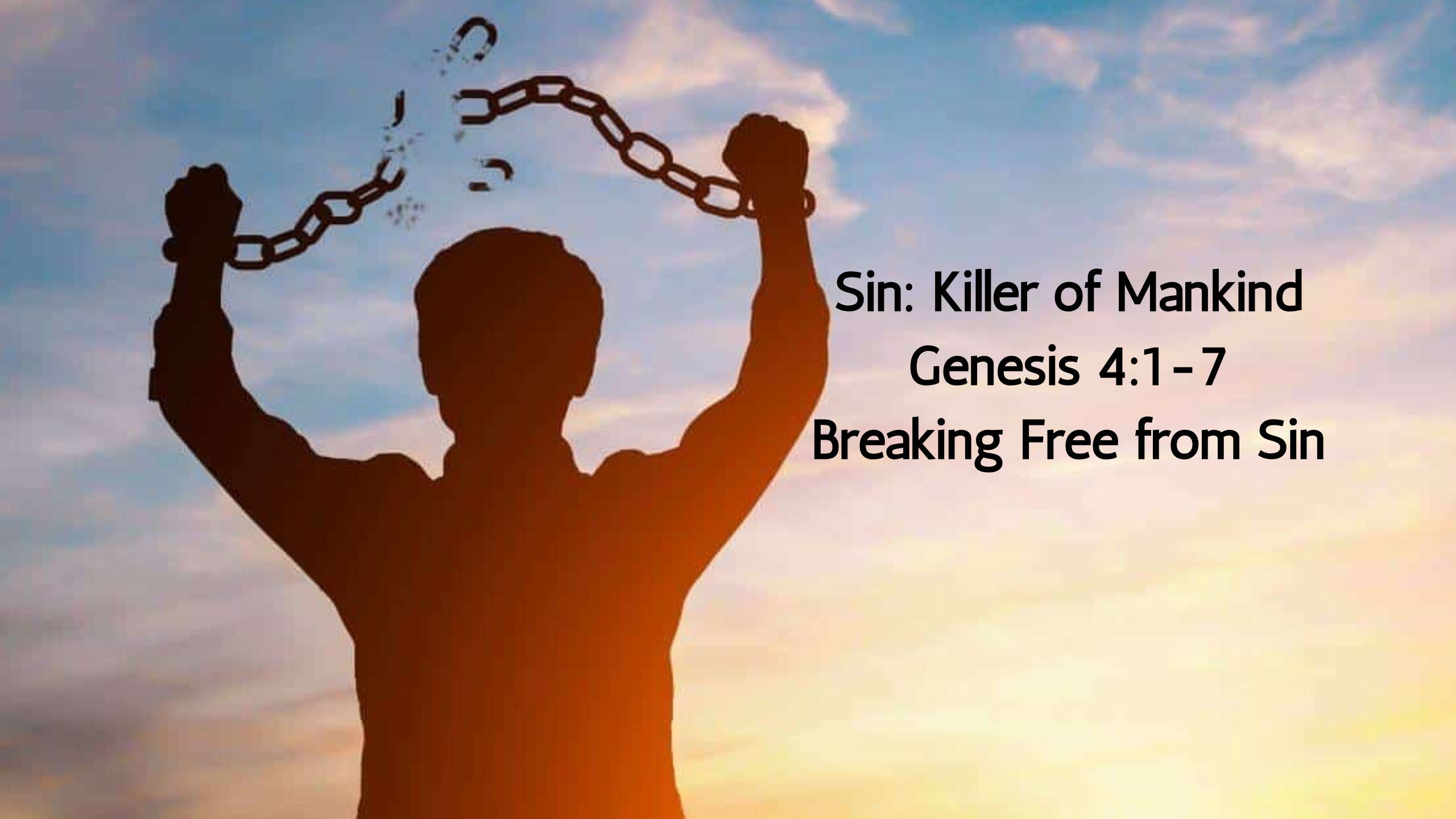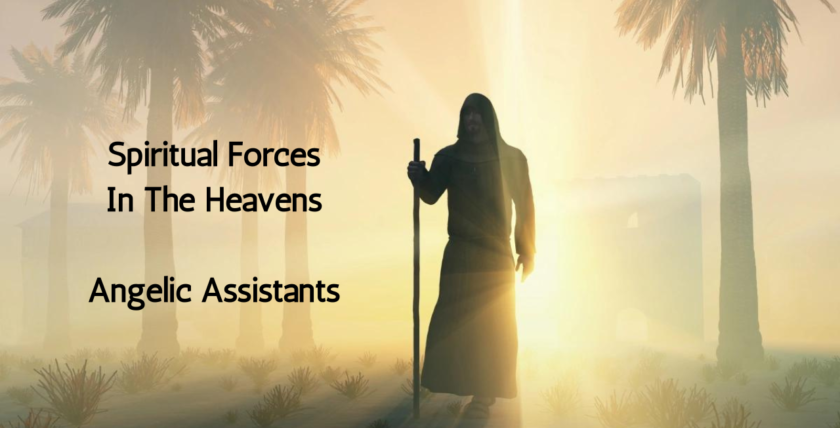In the previous episode, I explained that the gateway to sin is idolatry. When we put anything before God, we expose ourselves, like Adam and Eve, to being drawn away from obeying God’s first commandment, to love God, and to have no other gods before him. What does sin do to us when we open the door to sin? To understand this, we must ask, “Where does sin reside?” Does sin live within us or someplace else? When God created man, He said man was good. Did God create man with sin? No, otherwise, it couldn’t be said the man was good. So sin must reside outside of us.
The president of the United States said the other day, “The sole threat to humanity’s existence is climate change.” The Bible says the sole threat to humanity’s existence, our eternal existence, and our existence in this world is sin. Sin is the Killer of Mankind.
Let’s look at why that statement is true. We’ll start at the beginning in Genesis 4:1-7.
Sin is a powerful outside influence on us. It’s a spiritual power that strains for the opportunity to pounce and take us down. Let’s see what influence sin had on Cain:
Cain acted on the influence of sin and killed his brother Abel in Genesis 4:8-14.
Sin worked its influence on Cain, enticing him to act on his emotions and kill his brother. Cain saw the penalty for his action as death, saying others would kill him. He saw no hope for redemption. Sin did to Cain what it does to us. It beats us down and leaves us hopeless. But Paul says there is hope in 1 Corinthians 15:54-58.
Though Cain’s labor would be in vain, our labor won’t be in vain because of sin. Why? Because we are made acceptable to God through our “brother” and Lord Jesus Christ.
In the first century, sin (hamartia) meant to miss the mark, like an arrow missing its target. In a moral sense, it meant to deviate from what’s right. The Greeks saw hamartia as a character flaw that leads to human failure; for the Greeks, hamartia was within a person. Paul saw hamartia as an outside influence that affected man and the entire creation.
The Jews saw hamartia as a failure to follow God’s laws. And though Judaism began understanding hamartia as an outside force, the Hellenistic influence led them to see sin as a personal character failure.
Can anyone resist the influence of hamartia? No. We can’t resist sin by any human means. Our only answer is Christ. He broke the power of sin. The sting (spearpoint) of death (separation) is sin (the consequences of our failures), and the power (force) of sin (the consequence of our failures) is the law (nomos; the rules).
But Paul says in Romans 6:5-14 that we have a means to resist sin.
How did sin take Cain down? He became furious and depressed. Anger and depression often come as a pair. We get angry and lash out at someone or something, then we regret it and become depressed. We feel this way because we’re overwhelmed with guilt. Why do we feel guilty? Because we know what’s right and we didn’t do it. Knowing we did wrong, we expect to be punished, “khat-tawth.” Sin isn’t what we do wrong; it’s the punishment for what we do wrong. When we break the rules, whatever those rules are, sin lurks, waiting to pounce on us to punish us for not doing what we know is right. Therefore, “Sin” is empowered by rules to punish us and kill us.
Paul explains the feeling of helplessness against the influence of sin in Romans 7:24. Though frustrated by sin, Paul says there’s a solution (Romans 8:1-2).
In each of us, there’s an internal conflict. In some of us, the conflict may be greater or lesser. The conflict is between The Law of God (having the mindset of right and wrong) and The Law of Sin (having condemnation always oppressing us). This conflict brings us into slavery, douleuo (do-lu-o) – enslavement. This isn’t just obedience; it’s total bondage. Paul’s audience knew “douleuo” meant to be powerless against. We don’t casually submit to the law of God or the law of Sin; we can’t deny either.
But God provides the chain breaker: The Law of the Spirit of Life – in the Spirit, we’re not slaves; we’re set free from the condemnation of falling short of the rules and the punishment of death (separation from God). We’re free because the power of the Law of the Spirit of Life is peace, patience, kindness, goodness, forgiveness, love, reconciliation, redemption, grace, mercy, and joy – the fruit of the Spirit of God. Did you sin as someone “In Christ?” God is patient, kind, good, forgiving, loving, gracious, merciful, redeeming. But you have to believe it. If you believe Christ is your Savior, you live in the law of the Spirit of Life. If you don’t have faith in Christ, then the law of sin is killing you.
By faith, the law of the Spirit of Life sets us free *Eleuthero from the law of sin. By faith, we change masters. Sin was our master through the Law of God, condemning us to death. The Spirit of Life is our master through the Law of God to justify us. Same Law, God’s Law, but two different outcomes. How are we justified? We’re justified because Jesus Christ kept the Law of God and was declared righteous, holy, and true by his resurrection from the dead. Then, all who believe in Jesus become one with Him through the law of the Spirit of Life. That is the transition to freedom from a world of death to a kingdom of life everlasting.
I hope this study benefited your faith and your confidence in Christ. If you feel this study can help others, please share this video. I want to leave you a verse to consider when you’re feeling down with yourself. 2 Corinthians 3:17 says, “Now the Lord is the Spirit (that Spirit of Life), and where the Spirit of the Lord is, there is freedom.”


